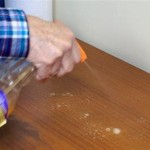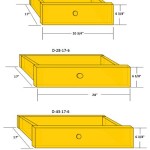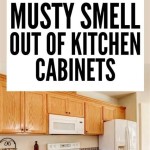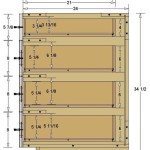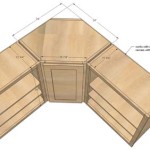The Ultimate Guide to Removing Built-Up Grease from Kitchen Cabinets
Kitchen cabinets, the unsung heroes of our culinary adventures, often bear the brunt of grease buildup, transforming their pristine surfaces into a sticky, unhygienic mess. While cleaning these surfaces may seem like a daunting task, armed with the right knowledge and techniques, you can restore their gleaming glory in no time.
Understanding the Enemy: Grease
Grease, a natural byproduct of cooking, is a combination of fats and oils that solidify when cooled. When it accumulates on kitchen cabinets, it becomes a breeding ground for bacteria and can make your cooking area unappealing. The key to effectively removing grease lies in breaking down its molecular structure.
The Magical Trio: Dish Soap, Degreaser, and Patience
Dish soap, a trusted ally in the kitchen, is a potent degreaser thanks to its surfactant properties. Degreasers, specifically formulated to dissolve grease, pack a heavier punch but may require cautious handling. Patience is a virtue when it comes to grease removal; rushing the process can lead to frustration and ineffective results.
Preparing for Battle: Gather Your Arsenal
Before embarking on your cleaning mission, gather your essential tools: dish soap, degreaser (optional), a soft sponge or cloth, a bucket of warm water, and a microfiber cloth for drying. Protect your hands with gloves to avoid skin irritation.
Step-by-Step Grease Removal
1. Test on an Inconspicuous Area: Before applying any solution to your cabinets, test it on a small, hidden area to ensure it does not damage the finish.
2. Dish Soap Solution: In a bucket of warm water, dissolve a generous amount of dish soap. Using a soft sponge or cloth, apply the solution to the greasy surfaces, working in small sections.
3. Degreaser Option: If dish soap alone fails to remove stubborn grease, consider using a degreaser. Follow the manufacturer's instructions carefully and test it on an inconspicuous area first.
4. Agitate and Rinse: Use the sponge or cloth to gently agitate the grease-covered areas, allowing the solution to penetrate and break down the grease. Rinse thoroughly with clean water to remove the dissolved grease.
5. Dry Thoroughly: Once the cabinets are cleaned, dry them thoroughly with a microfiber cloth to prevent streaking and water damage.
Preventive Measures
To prevent future grease buildup, consider the following tips:
- Wipe down cabinet surfaces regularly with a damp cloth.
- Use a range hood to ventilate and remove grease particles from the air.
- Cover pots and pans while cooking to minimize grease splatter.
By following these steps and incorporating preventive measures, you can maintain the pristine condition of your kitchen cabinets, ensuring a clean, hygienic, and inviting culinary space.

How To Clean Sticky Grease Off Kitchen Cabinets Ovenclean

How To Clean Kitchen Cabinets Everyday Skate

How To Clean Grimy Kitchen Cabinets With 2 Ingredients

How To Remove Thick Grease From Kitchen Cabinets

How To Remove Thick Grease From Kitchen Cabinets When Everything Else Fails

How To Remove Thick Grease From Kitchen Cabinets

Get Grease Off Kitchen Cabinets Easy And Naturally

How To Clean Old Grease From Kitchen Cabinets Fast Easy Sponge S

How To Clean Grease Off The Most Common Kitchen Surfaces

How To Clean White Kitchen Cabinets 3 Best Ways Avoid Abbotts At Home
Related Posts

